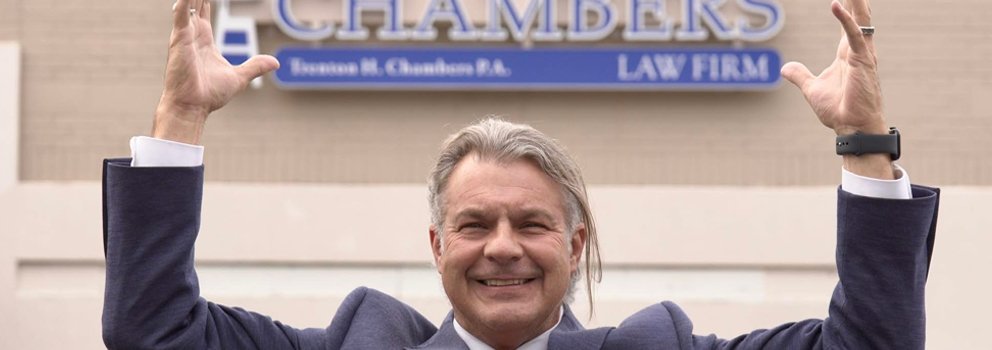
Prescription drugs are legal with a valid prescription, but unauthorized possession, distribution, or fraud is a serious crime under South Carolina law.
Even a first-time offense can lead to felony charges, jail time, and a permanent criminal record. If you’ve been accused of a prescription drug crime, you need a skilled defense attorney who understands both the law and the complexities of prescription drug cases. At Chambers Law, we fight to protect your rights and minimize the impact of these charges.
Call 843-449-0420 today for a free consultation.

Common Prescription Drug Charges in South Carolina
South Carolina law criminalizes the unauthorized possession, distribution, and misuse of prescription medication, including:
- Possession of a Controlled Substance: Having prescription drugs without a valid prescription
- Possession with Intent to Distribute (PWID): Holding large quantities that suggest sale or distribution
- Prescription Fraud: Forging or altering a prescription to obtain medication
- Doctor Shopping: Visiting multiple doctors to obtain multiple prescriptions
- Distribution & Trafficking: Selling, transporting, or illegally distributing prescription medication
Even if you had a prescription but were carrying pills in an unlabeled container, you could still face criminal charges.

Which Prescription Drugs Are Commonly Prosecuted?
Prescription drugs that frequently lead to criminal charges include:
- Opioids: Oxycodone (OxyContin, Percocet), Hydrocodone (Vicodin), Morphine, Fentanyl
- Anti-Anxiety Medications: Alprazolam (Xanax), Clonazepam (Klonopin), Diazepam (Valium)
- Stimulants: Adderall, Ritalin, Concerta
- Muscle Relaxers: Soma, Flexeril
- Sleeping Pills: Ambien, Lunesta
These drugs are classified as controlled substances and are regulated under South Carolina’s drug laws.

Penalties for Prescription Drug Crimes in South Carolina
Possession of a Controlled Substance (First Offense – Misdemeanor)
- Up to 6 months in jail
- Fines up to $1,000
- Possible probation and drug treatment
Possession of a Controlled Substance (Second Offense – Felony)
- Up to 5 years in prison
- Fines up to $5,000
Possession with Intent to Distribute (PWID) – Felony
- Up to 15 years in prison
- Fines up to $25,000
Prescription Fraud & Doctor Shopping
- Up to 5 years in prison
- Fines up to $5,000
Drug Trafficking of Prescription Medication
- Mandatory 7 to 25 years in prison
- Fines up to $200,000
Because many of these offenses are felonies, a conviction can lead to a permanent criminal record that cannot be expunged.

How We Defend Prescription Drug Charges
At Chambers Law, we develop custom defense strategies based on the facts of your case. Possible defenses include:
- Lack of possession: Were the drugs actually yours?
- Valid prescription defense: Did you have a prescription but were carrying medication improperly?
- Illegal search and seizure: Did police have probable cause to search you?
- Entrapment: Were you set up by law enforcement?
- Insufficient evidence: Can the prosecution prove intent beyond a reasonable doubt?
We thoroughly investigate your case, challenge weak evidence, and fight for dismissals, reduced charges, or alternative sentencing options.

Can You Expunge a Prescription Drug Conviction?
Expungement eligibility depends on the charge and outcome:
- Dismissed or Not Guilty Charges: Immediately eligible for expungement
- Pre-Trial Intervention (PTI): Available for first-time offenders and leads to expungement upon completion
- Conditional Discharge: First-time possession offenders may complete probation and have the charge dismissed
- Youthful Offender Act (YOA): Under age 25? You may qualify for record sealing after 5 years
Felony drug convictions cannot be expunged, making it critical to fight charges aggressively.

How We Can Resolve a Prescription Drug Case
Depending on the facts of your case, we explore legal options such as:
- Pre-Trial Intervention (PTI): A diversion program that results in dismissal and expungement
- Conditional Discharge: Avoids conviction if probation and treatment are completed
- Plea Bargaining: Negotiating a lower charge to avoid jail time
- Trial Defense: Fighting for an acquittal if necessary
We prioritize keeping your record clean and minimizing consequences.

